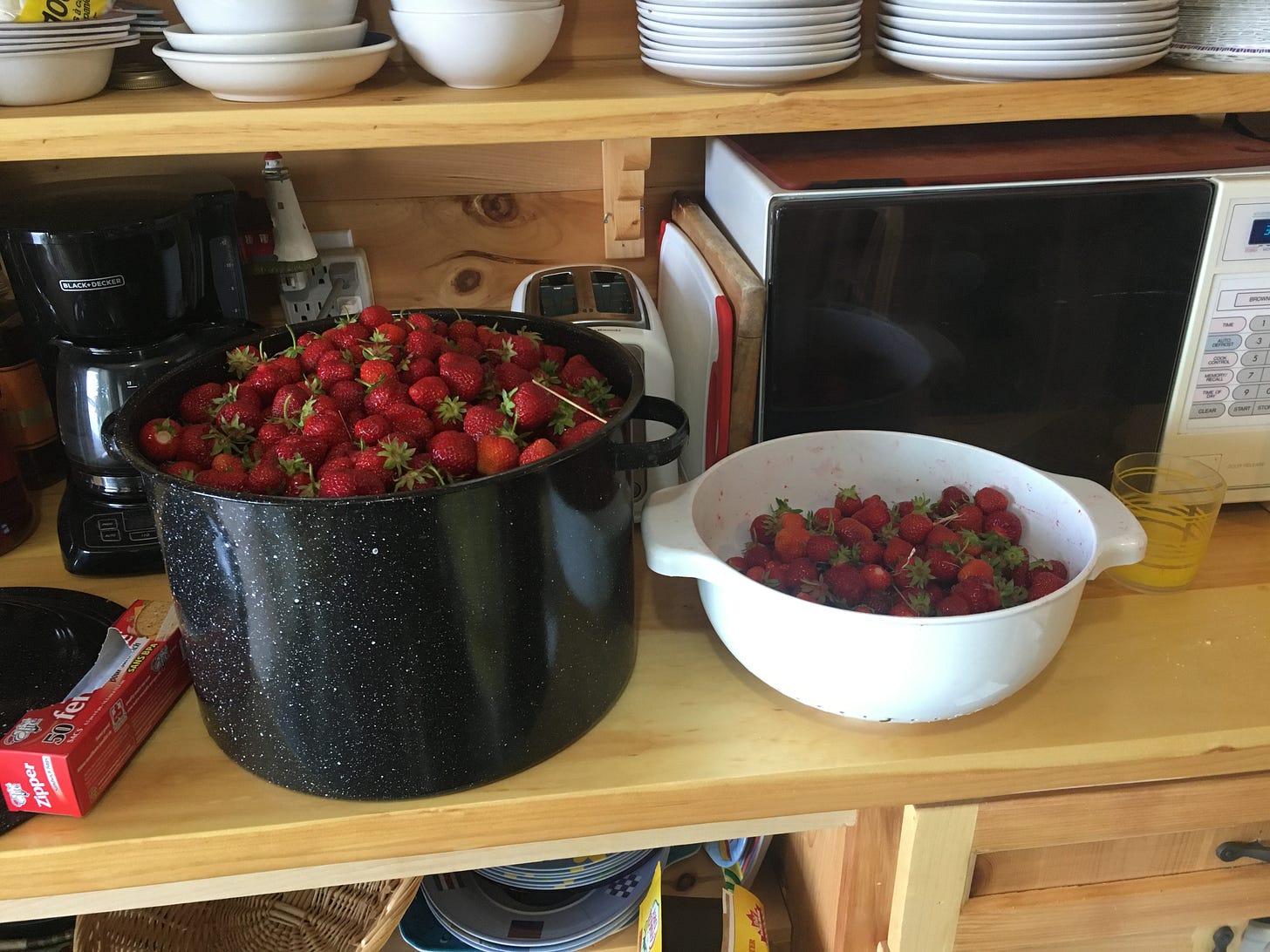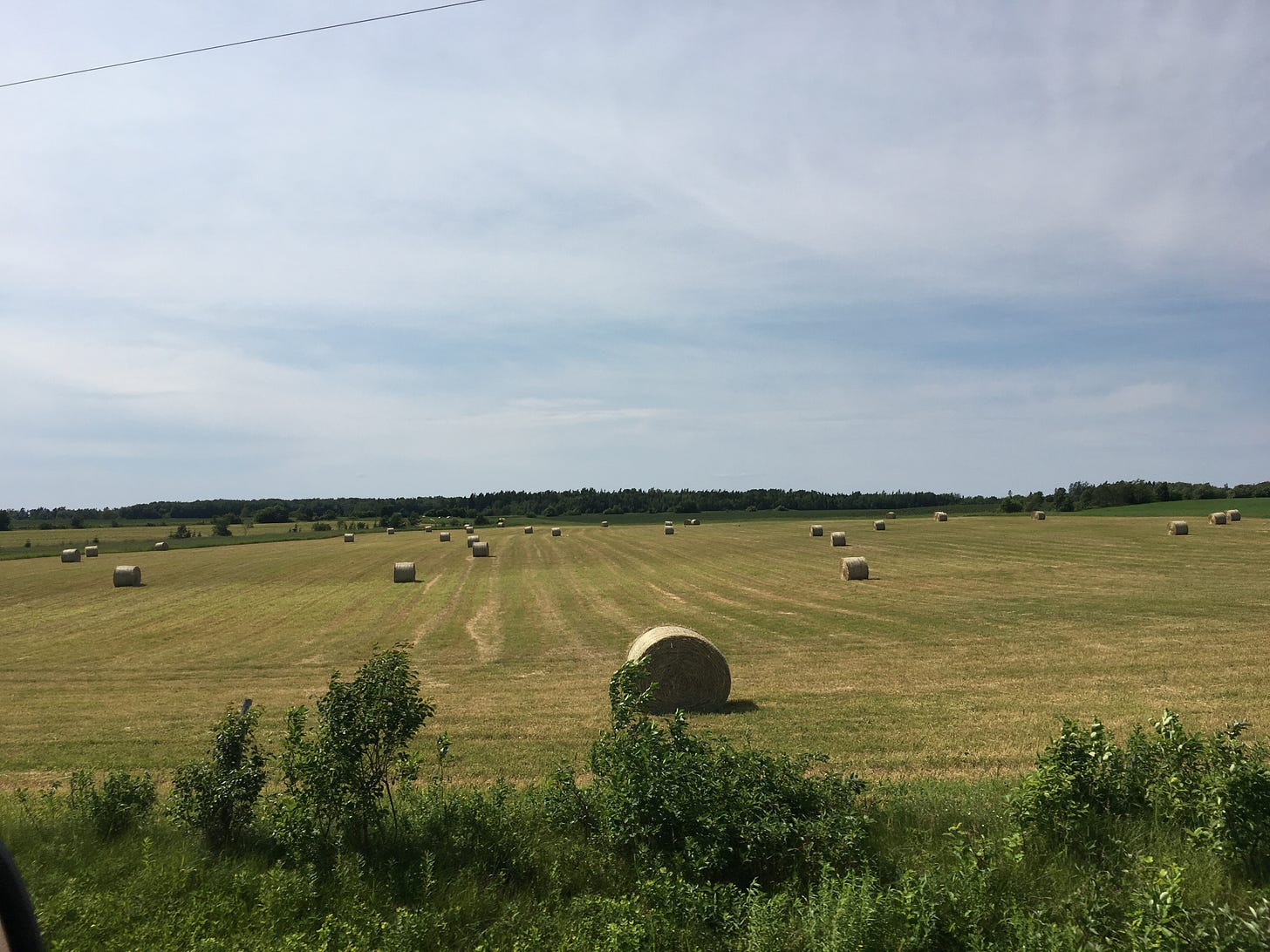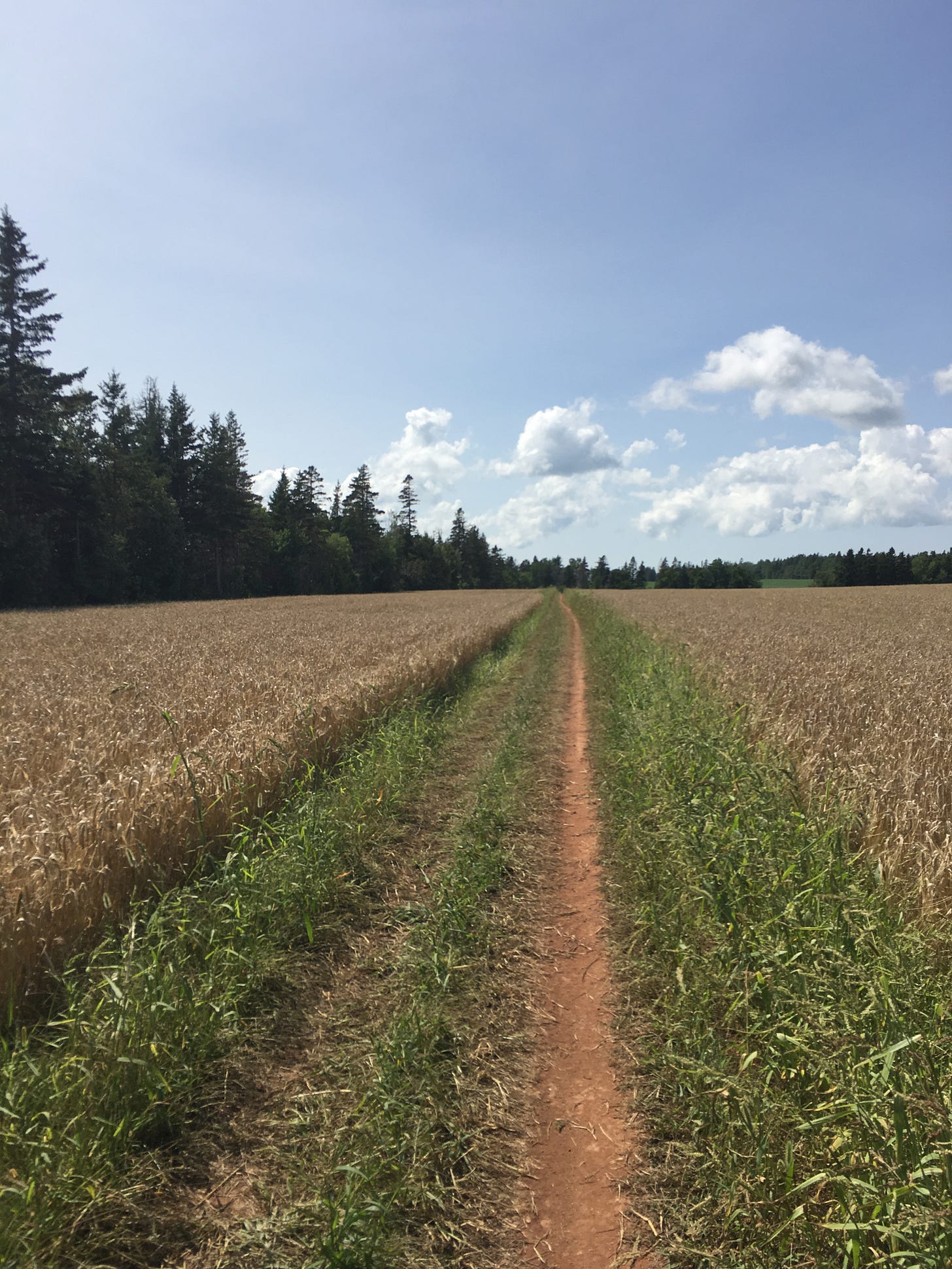My first brush with the realities of Canadian immigration happened when I was committing a crime. It was the summer after my freshman year of high school and my parents said it was time I earn a couple bucks (my Dad’s idea of hard work was not me sitting on the porch, devouring Stephen King's catalog). The issue in trying to get a job was that I was 14, at the cottage for the summer in P.E.I (that's in Canada for my Americans), and not a citizen or holding any sort of work visa. My mom has never let legality get in the way so she made a couple of phone calls. Through her vast network of cousins and friends a job was found for me: strawberry picking. Many of you will read this and go, “Oh, I just love picking berries!” Wrong. You don’t know what it's like to be in those trenches. If you pay to go to some U-Pick farm on the side of the highway and pick for a half hour in the summer with your friends just know it is not the same. Especially considering my pay. It corresponded to my effort which I admit may have been lacking. The numbers that come to me are .75 cents a quart and maybe 16 quarts to a box (forgive me it's been a while). What I can remember is that it sucked. There were three key reasons it sucked: 1. I was not good at it. 2. I made very little money. 3. See 1 and 2. Being bad at a job where you make no money is not a recipe for success. I have never been motivated by money. Not in some lofty, academic, anti-capitalisim way but more to do with a tendency to get bored by work. If the work isn't interesting my brain has no issue putting little effort into it, no matter the potential financial upside (future employers pretend you did not see this). Suffice to say, strawberry picking was not for me.
I remember my first day when my Dad drove me over to the fields which were about 30 minutes from our cottage. We had to be there for 6:30 am, which added salt to my wounds. Mist covered the bushes, the red clay soil was moist from the dew, and black flies were waiting. Dad dropped me off in a field by a truck where there were 10-15 people ranging from kids younger than me to ladies in their 80’s. We got the pep talk, what to do, what rows were ours, each row being assigned to a picker. We lathered up with bug spray (those black flies should be shot and killed for sport) and headed out into my “cubicle” with our strawboxes. That first day? It was the easiest, I flew down rows, I thought to myself, “Mannn this was going to be easy, I was born for this.” And so what if I ate as many as I picked or that I put some strawberries that were slightly green at the bottom of the quart so that the containers would fill up faster? I was convinced no one would notice. The older ladies were absolute pros but there I was busting my butt for some strawberries, I even had some pride in my chest! I too understood hard work!
The second day is always the hardest. Especially if your day starts by being called out in front of your co-workers for putting too many green strawberries in the bottom of your quarts and deceiving people. WHAT! How could they possibly have known so fast? In news that shocked me, it was revealed that each quart is numbered and those numbers corresponded with whomever picked them. This being a fairly local operation, someone had bought a couple of my quarts at the local grocery store and were pretty ticked off to discover a ton of not quite ripe strawberries waiting for them just past the top layer. The jig was up and I was embarrassed to high hell. Not to plead ignorance but I hadn't done it to be mischievous, it just seemed like the way to go faster and in my defense I like sour strawberries! With self implemented strawberry ripeness protocols in place my production dropped to dismally low numbers. There was no hope in sight only endless rows of strawberries.
The routine repeated itself: Dad would drive me to work, I would listen to my audio books and occasionally pick strawberries. The season was extremely short, only about a month long. We worked from 6:30 to noon because then it would be too warm (funny, if you put a bunch of old white ladies in fields suddenly people care a whole lot about working conditions). Picking strawberries for hours by yourself is incredibly boring but my Mom’s iPod Nano was my salvation. I would spend hours figuring out how to load up an audiobook so that I could escape the monotony. Once in the fields I would lay on my side and scoot down the rows, picking strawberries as I went, as if I was a Roman emperor being fed grapes (it was as ridiculous and as ineffective as you can imagine). Old ladies and little kids lapped me as I was busy in far away worlds fighting aliens and racing to find hidden treasure! Since I was only paid based on how much I picked I think I made around $3 or $4 dollars an hour that season. It didn't cover the cost of gas to drive me there. I was paid under the table in cash with a wink and no mention of a T4 because I was technically speaking an illegal foreign worker. And to think a cousin's cousin did all that for an ungrateful teenager. But no one called the RCMP (that’s the police for my Americans) on the little white boy picking strawberries.
When my mom would come pick me up we would take our time driving home. These adventures took us all over “our” little section of the island, we would go to where my great-grandmother had grown up, the dairy farm a distant relative used to own, we might stop in at my cousins’ or Mom’s friends and catch up. These are rural roads lined with potato fields, hay bales and white spruce trees. With no sidewalks and lots of distance to cover, everyone speeds. Yet sometimes I would see a man biking with grocery bags full to the brim, or a few men walking with backpacks on roads not meant for walking. Men with skin darker than anyone else’s for hundreds of kilometers in any direction. My cousins would later tell me these men and women would help work the lobster and fish canaries during the season and then go home but many would try and stay in Canada, though the process gets harder and harder every year. They were flown in from small towns and cities in the Philippines, somewhere where Tim Hortons might just be the name of the local missionary. They worked longer hours than me, far from home, and were trying to support their families. All I knew was that these workers walked the long dusty clay roads no one else walked, my teenage brain seeing but not understanding. The whole car ride home I would complain about my day, how tired I was, how hard my five hours of low intensity labour were. I gave no thought to where those men we passed by would be walking to or from or how heavy the bags they carried must have been. As I whined, clay dust spit up behind the car, leaving behind people just trying to get somewhere better.
____________________________________________________________________________
Immigrants have rights. Whether it is in Canada or America or anywhere else in the world, they are human beings and should be treated with dignity at every step of the process. With the rise of fascism and xenophobic messaging from both countries it is more important now than ever before to know those rights, Immigrants-rights for my Americans and about-ccr for my Canadians. Protect your neighbors, your friends, and your co-workers, if you see I.C.E or the R.C.M.P coming to deport someone, tell them to fuck off. Have some empathy, our governments DON’T, so we MUST.








Nice story! My first regular job was... equivalent, or less good. Kentucky Fried Chicken, washing all the grease-covered cooking gear for similar wages, limited to 3 1/2 hours per shift. Just long enough to block out my evenings, become disgustingly covered in chicken fat, and earn $10 before taxes.
I was told by the owners of the KFC that this was a college education job. Meaning, this is the kind of job that shows you the need to get a college education.
I was not amused. I might have even signed up for the black flies, if given the chance.
P.S. found you because I worked with your dad, visited you on a 4th of July maybe three years ago, and your mom posted the link on FB.
I appreciated you identifying the species of spruce (white spruce, Picea glauca)